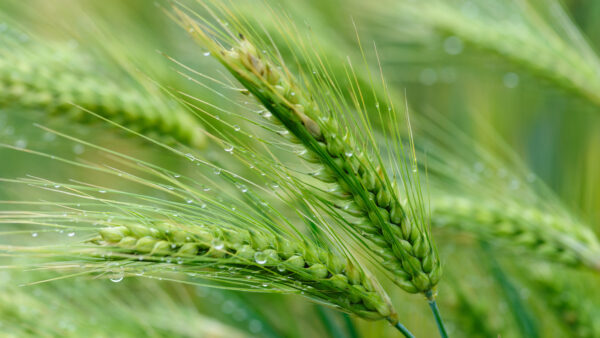Agroscope has been granted approval by the Federal Office for the Environment for a field trial with spring barley, according to a press release.
The trial, set to launch in spring 2024 at the Protected Site in Zurich-Reckenholz and spanning three years, centers around a barley gene rendered inactive through innovative breeding techniques. Its objective is to ascertain the potential increase in yields through this approach.
The CKX2 gene is involved in the regulation of seed formation. Disabling this gene by means of a new breeding method (CRISPR/Cas9 genome editing) brings about increased yields in rice and oilseed rape.
International Collaboration
Researchers from Freie Universität Berlin have noted that barley harbors two slightly distinct copies of this gene. Collaborating with researchers from the Leibniz Institute of Plant Genetics and Crop Plant Research (IPK), they produced barley lines in which both copies were rendered inactive. These lines exhibited increased grain production per spike in greenhouse conditions.
Together with Freie Universität Berlin, the frelease notes that Agroscope is now investigating these barley plants on the Protected Site to answer the following questions, among others:
- Do the plants also produce more grains per spike under field conditions, and does this result in higher yields?
- Do both copies of the gene need be disabled, or is knocking out one sufficient?
- Does disabling one or both copies of the gene modify other characteristics besides yield under field conditions?
No Foreign DNA
Using the precise CRISPR/Cas9 technique, researchers disabled either one or both copies of the CKX2 gene in different barley lines. In contrast to plants previously examined at the Protected Site, the barley lines created through this method did not contain any foreign DNA. While such a modification could potentially arise through random natural mutation, these barley lines are classified as genetically modified plants (GMPs) due to the application of a novel technique altering the plant – hence the field trial’s need for the authorisation of the Federal Office for the Environment.
Trials From Spring 2024 Onwards
The field trial will begin in spring 2024 at the Protected Site of Agroscope Zurich-Reckenholz and is slated to span approximately three years. The study employs the old malting barley variety ‘Golden Promise,’ which is not currently grown in Switzerland. This variety is comparatively easy to genetically modify and is thus often used in research. The release states the knowledge gleaned from the trials will also be applicable to modern varieties of barley, and, with good prospects of success, to additional cereal species such as wheat or spelt.
Discussions on Regulation are Ongoing
The regulation of plants from new breeding techniques such as CRISPR/Cas9 is currently being discussed in various countries. According to a first ruling of the EU Parliament, plants which could also arise by chance in nature (without foreign DNA) are to be less strictly regulated in future. The Swiss Federal Council is expected to submit proposals as to how it envisages the future authorisation scheme for such GMPs in mid-2024.












